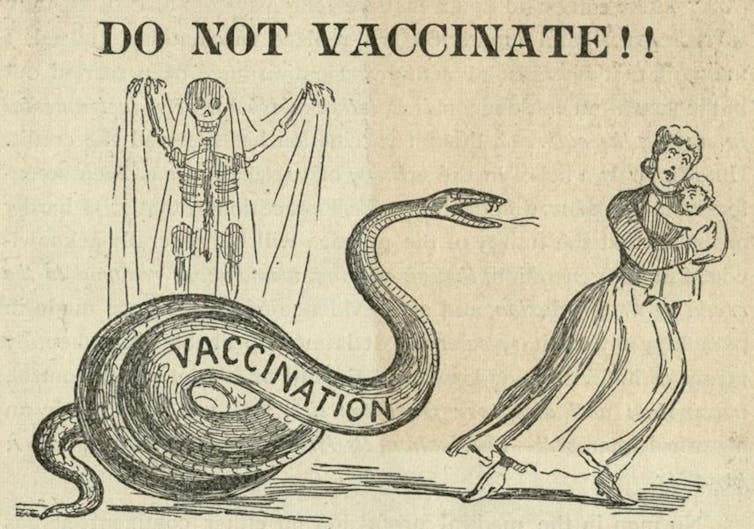Notes from the edge of civilization: Feb. 25, 2024 (late edition)
Don't fear the meme-r; keep the corn out of your car; Substack debuts its first documentary; and why the pandemic treaty is really about trade.
It has been a busy but productive weekend at Collapse Life headquarters, so forgive this brief (and late) roundup.

Reclaim the Net shared a story this week about research into “how influencers use anti-vaccination memes for commercial and political gain.”
The paper was published in the January 2024 edition of the peer-reviewed journal, Social Media + Society, and is described thusly:
Drawing on a 12-month digital ethnography of three disinformation producers on Instagram and Telegram, we conceptualize their strategy of meme warfare in terms of the logics of spoiled identity, demonstrating how stigma is used to galvanize and recast the antivaccination movement around themes of persecution and moral superiority.
“Memes,” the authors say, “play an integral role in disinformation campaigns by facilitating fear, uncertainty and doubt.” They are concerned that the producers of memes are able to “express ideas that would otherwise be forbidden under the guise of humor and irony” and suggest that “disinformation producers should be subject to cross-platform monitoring and friction to limit virality.”
Meme warfare?? Hmmmm. We’ve got a meme for that…
We had some great interaction and interest around our story on the freedom of the open road. In it, we suggested that car ownership was becoming an abstraction thanks to driving being increasingly mediated through technology. We added that car ownership in the future would likely be the purview of the wealthy only, leaving the rest of us to wallow in our 15-minute cities.
One of the antidotes to that hellish possibility, we suggested, was to forego digital cars by buying good quality older used cars and keeping them on road for as long as you can through regular, diligent maintenance.
Then, this NBC News headline came past our eyes and we felt it important to add an important detail regarding driving old cars and the move by elites to get internal combustion engine cars off the road by any means possible.
We can talk about the insanity of subsidized “big corn,” the source of the ethanol additive. We can argue about using farmland to make fuel. We can debate the reasons for fuel inflation. We can even quibble about whether there is any actual environmental benefit to ethanol.
What we cannot argue about is that you should not run E15 gasoline in older engines. For starters, the older rubber and plastic components and even some of the metal deep inside your engine will quickly succumb to the highly corrosive nature of ethyl alcohol. That’s an expensive fix.
Another reason is that when an ethanol/gasoline mixture sits stagnant in a gas tank, the ethanol will absorb and hold water until it reaches a saturation point. At a certain point, the water and ethanol separate, leaving a layer of alcohol and water at the bottom of a gas tank. Obviously trying to run an engine on water isn’t going to work.
So it seems that the mission — whether on purpose or as a by-product of other destructive policies — is to reduce mobility. Be on the lookout for government “solutions” and instead, keep topping up your older car’s tank with fuel that is either no more than E10, high octane or better yet, completely ethanol-free (yes, it exists). And, add slowly to your fluids collection — Seafoam, Sta-Bil, STP or any other favorite fuel stabilizer and octane booster, to try and prevent water separation when not driving your older car all the time.
This week Substack launched its first feature documentary, The Coddling of the American Mind, based on the best-selling book by Greg Lukianoff and Jonathan Haidt.
Like the book, the film explores the mental health crisis among Gen Z — and it looks like it will be an interesting watch. Even more intriguing is Substack’s move into film distribution. It’s good news for filmmakers who are having trouble finding outlets to tell counter-narrative stories.
In case you missed it, here’s what was happening at Collapse Life this week:
Our look at Phoenix’s new experiment in urban, car-free living. How practical will it be for people with children... or real jobs?
An exploration of the term ‘grift’ and why it seems to be some people’s new favorite epithet. We seem to be so utterly divided now that even words have political affiliations.
In a return appearance on the Collapse Life podcast, researcher James Roguski explains the difference between the amendments to the World Health Organization’s International Health Regulations and the negotiation for a new pandemic accord. He also explains why we should all care about these seemingly arcane processes, and who stands to gain (and who will lose) if they proceed as planned.







